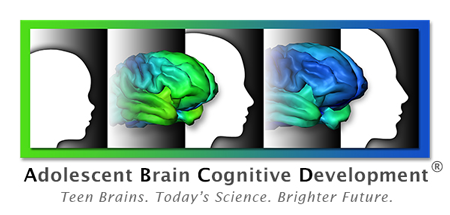Archived Content
The National Institute of Mental Health archives materials that are over 4 years old and no longer being updated. The content on this page is provided for historical reference purposes only and may not reflect current knowledge or information.
Recruitment Begins for Landmark Study of Adolescent Brain Development
More than 10,000 children will participate in study of brain, social, emotional, and cognitive development
• Press Release

Recruitment for the Adolescent Brain Cognitive Development (ABCD ) study, the largest long-term study of brain development and child health in the United States, began today. The landmark study by the National Institutes of Health will follow the biological and behavioral development of more than 10,000 children beginning at ages 9-10 through adolescence into early adulthood. Recruitment will be done over a two-year period through partnerships with public and private schools near research sites across the country as well as through twin registries.
Adolescence is a time of extraordinary physical, emotional, and intellectual growth as well as a changing social environment full of new challenges and opportunities that help shape a young person’s adult identity, health and well-being. There is much to learn about how varied adolescent experiences (e.g., participation in extracurricular activities; playing video games; sleep habits; head injuries from sports; experimentation with alcohol, tobacco, marijuana or other substances), affect development and vice-versa. This is particularly true in our rapidly changing world, which is now dominated by social media and other forms of communication in which adolescents readily engage.
“We know the brain is still developing well into the mid-20s, making it vulnerable to a host of influences,” said NIH Director Francis S. Collins, M.D., Ph.D. "With several NIH institutes and centers working together on this important study, we will be able to learn how a variety of biological events and environmental exposures affect brain development, giving us greater insight into what helps adolescents traverse that potentially tumultuous time to become healthy and productive adults.”
During the course of the next decade, scientists will use advanced brain imaging, interviews, and behavioral testing to determine how childhood experiences interact with each other and with a child’s changing biology to affect brain development and—ultimately—social, behavioral, academic, health and other outcomes.
Understanding these relationships may help reveal the biological and environmental building blocks that best contribute to successful and resilient young adults. This enhanced knowledge also may lead to ways to predict potential developmental problems so that they can be prevented or reversed. Families that volunteer will be part of groundbreaking research that promises to inform future educational strategies, child development innovations, research priorities, more effective public health interventions, and science-based policy decisions.
The ABCD Coordinating Center is housed at the University of California San Diego and recruitment will be conducted through schools at 19 study sites across the country. For more information about this landmark study, please visit its website at www.ABCDStudy.org .
The ABCD study is supported by the National Institute on Drug Abuse, the National Institute on Alcohol Abuse and Alcoholism, the National Cancer Institute, the Eunice Kennedy Shriver National Institute of Child Health and Human Development, the National Institute of Mental Health, the National Institute on Minority Health and Health Disparities, the National Institute of Neurological Disorders and Stroke, the NIH Office of Behavioral and Social Sciences Research, and the Division of Adolescent and School Health at the Centers for Disease Control and Prevention.
About the National Institutes of Health (NIH): NIH, the nation's medical research agency, includes 27 Institutes and Centers and is a component of the U.S. Department of Health and Human Services. NIH is the primary federal agency conducting and supporting basic, clinical, and translational medical research, and is investigating the causes, treatments, and cures for both common and rare diseases. For more information about NIH and its programs, visit the NIH website .
NIH…Turning Discovery Into Health®
Centers for Disease Control and Prevention: CDC works 24/7 saving lives and protecting people from health threats to have a more secure nation. Whether these threats are chronic or acute, manmade or natural, human error or deliberate attack, global or domestic, CDC is the U.S. health protection agency.